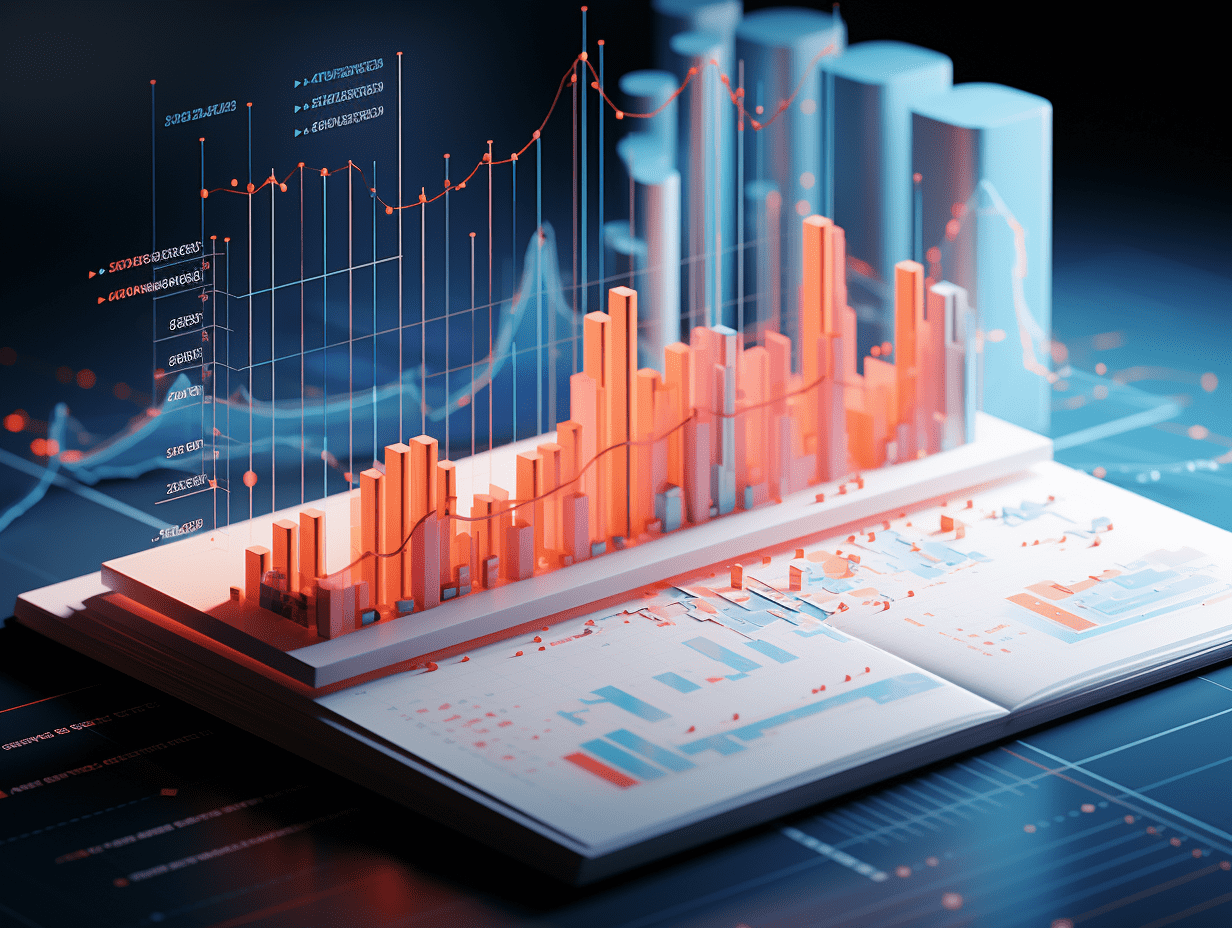New Stock Preview | Baoli Tianheng (688506.SH): How long can we survive on just one big customer (BD)?
Core products received an $8.4 billion USD investment, will the market value of Bally Tianheng, which has surged, be able to replicate the 4x trend in the A-shares market?
The pharmaceutical industry has not been doing well in the past two years, with most pharmaceutical companies' stock prices hitting new lows, but there are exceptions, such as Sichuan Biokin Pharmaceutical (688506.SH). Since its debut on the Sci-Tech Innovation Board at the beginning of 2023, the stock price of Biokin Pharma has been soaring continuously. Data shows that since its listing in January 2023, in just a year and a half, Biokin Pharma's stock price has accumulated a 463.41% increase, with a market value of 69 billion yuan. The company's founder, Zhu Yi, also briefly became the richest entrepreneur on the Sci-Tech Innovation Board. It is worth mentioning that during the same period, the pharmaceutical industry as a whole saw a decline of 27.15%, making Biokin Pharma's surge stand out.
On July 10, Biokin Pharma submitted its long-prepared IPO application to the Hong Kong Stock Exchange, with Goldman Sachs, J.P. Morgan, and CITIC Securities as joint underwriters. If the Hong Kong IPO goes smoothly, Biokin Pharma will become one of the pharmaceutical companies listed on both the A-share and H-share markets, a move seen as a step towards strengthening international development and expanding international markets.
Will Biokin Pharma be able to replicate its A-share performance after listing in Hong Kong, bringing substantial profits to Hong Kong investors? Within a short period of listing in both markets, will it bring good news or face financial difficulties for investors in the Hong Kong market?
$800 million down payment buys time
It is understood that Biokin Pharma's history dates back to 1996 when the company's initial business was generic drugs and traditional Chinese medicine. In 2010, the company established an innovative drug team. In 2014, the company established SystImmune in Seattle, USA, and began developing the first-in-class EGFR HER3 dual antibody-drug conjugate (BL-B01D1). After ten years of effort, the company reached a cooperation agreement with BMS totaling $8.4 billion, with an initial payment of $800 million.
Currently, the company has built a leading ADC drug development platform, successfully developing a pipeline of six ADC drugs entering clinical stages, including BL-B01D1. The company has conducted about 60 clinical studies, with 9 in Phase III and 13 in Phase II.
In addition, the company has also established an innovative multispecific drug platform, successfully developing a pipeline of 4 innovative multispecific antibody drugs entering the IND or clinical stages, including GNC-077, and has conducted 10 clinical studies.
Financially, the company's earliest business of generic drugs and traditional Chinese medicine still generates revenue for Biokin Pharma. In 2021, 2022, 2023, and the four months ending on April 30, 2024, the revenue from drug sales was 795 million, 702 million, 560 million, and 165 million yuan, respectively.
In terms of gross margin, under the influence of centralized drug procurement policies, both the company's revenue scale and gross margin have been declining. Data shows that Biokin Pharma's gross margin has dropped from 75.7% in 2021 to 52.6% as of April 30, 2024.
Additionally, as the company's pipeline continues to expand, research and development expenses have been on the rise. The company's research and development expenses were 2.79 billion, 3.75 billion, 7.46 billion, and 3.34 billion yuan in 2021, 2022, 2023, and the four months ending on April 30, 2024, respectively. This has resulted in a growing annual loss for the company, with a loss of 780 million yuan in 2023.
As of December 31, 2023, the company's cash and cash equivalents were only 3.91 billion yuan.
Thanks to the agreement in December last year, Biokin Pharma granted part of the commercialization rights for its independently developed product "BL-B01D1" to Bristol-Myers Squibb (BMS) in a deal totaling $84 billion. As of April 30 this year, the company received an $800 million initial payment, realizing revenue of 5.497 billion yuan and a net profit of 4.864 billion yuan, with cash and cash equivalents reaching 58.7 billion yuan, giving the company a lifeline.
However, Biokin Pharma still faces significant financial pressure in the future. The risk factors mentioned in the prospectus state that as of April 30, the revenue generated from the BMS agreement has contributed most of the company's revenue. If the company or BMS fails to achieve product development or commercialization goals within the expected timeframe, the company may not receive milestone or royalty fees or earn profits to support its future development plans.
It is clear that Biokin Pharma's future performance will mainly rely on the clinical progress of its core product, BL-B01D1. If the clinical progress goes smoothly, the company could potentially earn an additional milestone income of up to $7.6 billion. In 2023, Biokin Pharma's BL-B01D1 set a record for the largest single BD in the ADC field. So how effective is the BL-B01D1 that BMS paid a hefty sum for in the ADC field?
The leading dual-antigen therapy is still two years away from commercialization, but its market value is already high.
It is understood that BL-B01D1 is a dual-antigen ADC designed to simultaneously inhibit the EGFR and HER3 pathways. Overactivation of EGFR
EGFR homodimer can cause abnormal proliferation and survival of tumor cells. BL-B01D1 can effectively suppress tumor growth and metastasis by inhibiting these homodimers. Additionally, BL-B01D1 can block the EGFR HER3 heterodimer, providing a more comprehensive inhibition of the ErbB family signaling pathway, resulting in stronger and more long-lasting anti-tumor effects on EGFR-driven cancers.
Existing ADC drugs on the market face various issues such as efficacy, safety, and resistance, requiring better solutions. Compared to traditional ADCs, bispecific antibody-drug conjugates (BsADC) have a unique dual binding mode that can enhance selectivity by binding to antigens co-expressed in solid tumors and significantly improve internalization. These unique advantages make BsADCs a future trend for the next generation of ADCs.
According to data from Zokos Consultancy, the market for bispecific and multispecific cancer drugs is expected to grow significantly in the coming years. In 2023, the market size for bispecific and multispecific cancer drugs is estimated at $20 billion.It is estimated that the market will reach $70 billion by 2033. By 2023, the market for innovative and multi-specific drugs in China and the United States reached $2 billion and $9 billion respectively. It is expected that by 2033, they will reach $19.9 billion and $25.7 billion respectively, with a high compound annual growth rate of 57.5% and 39.7%.The market prospects are promising, but currently there are no BsADC drugs on the market globally, and the competitive landscape for the BsADC market looks good from a clinical standpoint. As of December 2023, there are a total of 10 BsADC drugs in clinical trials globally, with some early clinical trial results being presented at academic conferences such as AACR and ESMO. The safety and efficacy of most drugs are still lower than expected in theory, indicating that the design of BsADCs is not just a matter of selecting appropriate antibody molecules, linkers, and payloads. The fundamental factor in the successful development of BsADCs is how these "parts" are effectively combined, which determines the ultimate therapeutic window and systemic toxicity.
In terms of target selection, most pharmaceutical companies currently choose HER2HER2, perhaps because there are already multiple HER2 products on the market, leading to faster research and development progress. For target selection, BeiLiTianHeng chooses EGFRHER3, as both targets are expressed in many cancer types and have the potential to become a broad-spectrum cancer treatment.
Based on this, BeiLiTianHeng's BL-B01D1 is currently being tested in over 20 clinical trials, including 7 Phase III trials for monotherapy in the treatment of cancer: 2 indications for non-small cell lung cancer, 1 indication for small cell lung cancer, 2 indications for breast cancer, 1 indication for esophageal squamous cell carcinoma, and 1 indication for nasopharyngeal carcinoma; 8 Phase II trials for combination therapy with PD-(L)1 class drugs in first-line treatment, including 9 indications; and 1 Phase II trial for combination therapy with TKIs in first-line treatment of lung cancer.
Currently, BL-B01D1 is the world's first and only EGFRHER3 dual-target ADC in clinical development, intended for the treatment of various solid tumors. It is also the world's first dual-target dual-antibody ADC to enter Phase III trials, and one of the most clinically studied ADC drugs, having been studied in over 1,000 patients with different types of cancer.
Leading research and development progress, a promising industry outlook, and a good competitive landscape are some of the reasons why BMS invested heavily in purchasing BL-B01D1; in addition, BL-B01D1 has the potential for combination therapy with PD-(L)1 to treat multiple cancers.
The prospectus shows that in many solid tumor indications covered by PD-(L)1 antibody first-line treatment, BL-B01D1 has the potential to replace chemotherapy as part of the current standard of care in PD-(L)1 combination therapy; for major indications covered by TKIs in first-line treatment, BL-B01D1 also shows potential for combination therapy with TKIs to become a new generation standard of care. Therefore, BL-B01D1 has the potential to become the next cornerstone drug and super blockbuster drug after PD-(L)1 immunotherapy.
From a theoretical perspective, BL-B01D1 does have huge market potential, but it is worth noting that high expression of HER3 in many cancers is also related to disease progression or poor prognosis, leading to drug resistance in patients to various treatment drugs, such as HER2:HER3-mediated signaling in head and neck cancer and breast cancer patients developing resistance to EGFR TKIs. Currently, there are no HER3-targeted drugs on the market globally, with the fastest progress being made by Daiichi Sankyo in collaboration with MSD in developing HER3 ADC, which was submitted for market approval in the US in December 2023 for third-line EGFRm NSCLC treatment. In addition, HER3 itself has a weak kinase activation domain, making it difficult for drugs targeting HER3 to become marketed. Therefore, the success of BeiLiTianHeng's BL-B01D1 remains uncertain.
Furthermore, BL-B01D1 is still a long way from commercial realization, full of uncertainties. BeiLiTianHeng expects BL-B01D1 to submit the first indication NDA application to the Chinese regulatory authority in 2026 or earlier, and the first BLA application to the FDA in the United States as early as 2028. Over the next three to five years, BL-B01D1 will gradually submit more indication regulatory approval applications in China, Europe, the US, and other markets.
In addition to the blockbuster drug BL-B01D1, BeiLiTianHeng has 10 innovative biopharmaceutical clinical-stage projects, with SI-B001 and SI-B003 advancing to Phase III clinical trials. Several potential FIC and BIC drug varieties are also in active development. It is worth noting that market competition is fierce for these two products entering Phase III trials. BeiLiTianHeng lacks an advantage in research and development, and commercialization is also a weakness, so these two products are unlikely to bring significant extra profits to the company.
With numerous pipelines in research and development, substantial funding support is needed. Although BMS invested $8.4 billion in BL-B01D1, it is not a one-time payment, and whether BeiLiTianHeng can continue to receive funds from BMS depends on the progress of BL-B01D1 research and development. In the next three years, the company will still be in the stage of investment in research and development, and profitability will not be achieved. BeiLiTianHeng's research and development spending has exceeded 1 billion RMB in the past three years, and it will only increase in the next three years. In the initial stage of commercialization, a significant amount of expenditure is also required, so without timely fundraising, the company's funding position will become relatively tight.
Regarding the Hong Kong IPO, BeiLiTianHeng stated that the funds raised will be used for the company's research and development activities of biopharmaceuticals outside of mainland China; to establish the global supply chain for BeiLiTianHeng, mainly for the construction or acquisition of new production facilities for candidate biopharmaceuticals outside mainland China; and for the operational funds and other general corporate purposes of BeiLiTianHeng's business outside of mainland China.
It is worth mentioning that BeiLiTianHeng's market value has already reached the expected amount received from BMS's entire BD, entering the Hong Kong stock market with such a high market value, subsequent stock price gains will be limited, and any slight deviation from expected stock prices could result in significant fluctuations.
Related Articles

US Stock Market Move | Multiple departments issued letters to support the new consumption and financial consumption driving LexinFintech Holdings Ltd. Sponsored ADR Class A (LX.US) to rise by 6.04%.

Industry's First Rider Family Hospitalization Protection Implemented Meituan Upgrades Major Illness Care Plan Covering Over One Million Rider Families

Hims & Hers Health (HIMS.US) launches cheap weight loss pills, FDA stops sales the next day, stock price plummets after hours.
US Stock Market Move | Multiple departments issued letters to support the new consumption and financial consumption driving LexinFintech Holdings Ltd. Sponsored ADR Class A (LX.US) to rise by 6.04%.

Industry's First Rider Family Hospitalization Protection Implemented Meituan Upgrades Major Illness Care Plan Covering Over One Million Rider Families

Hims & Hers Health (HIMS.US) launches cheap weight loss pills, FDA stops sales the next day, stock price plummets after hours.






